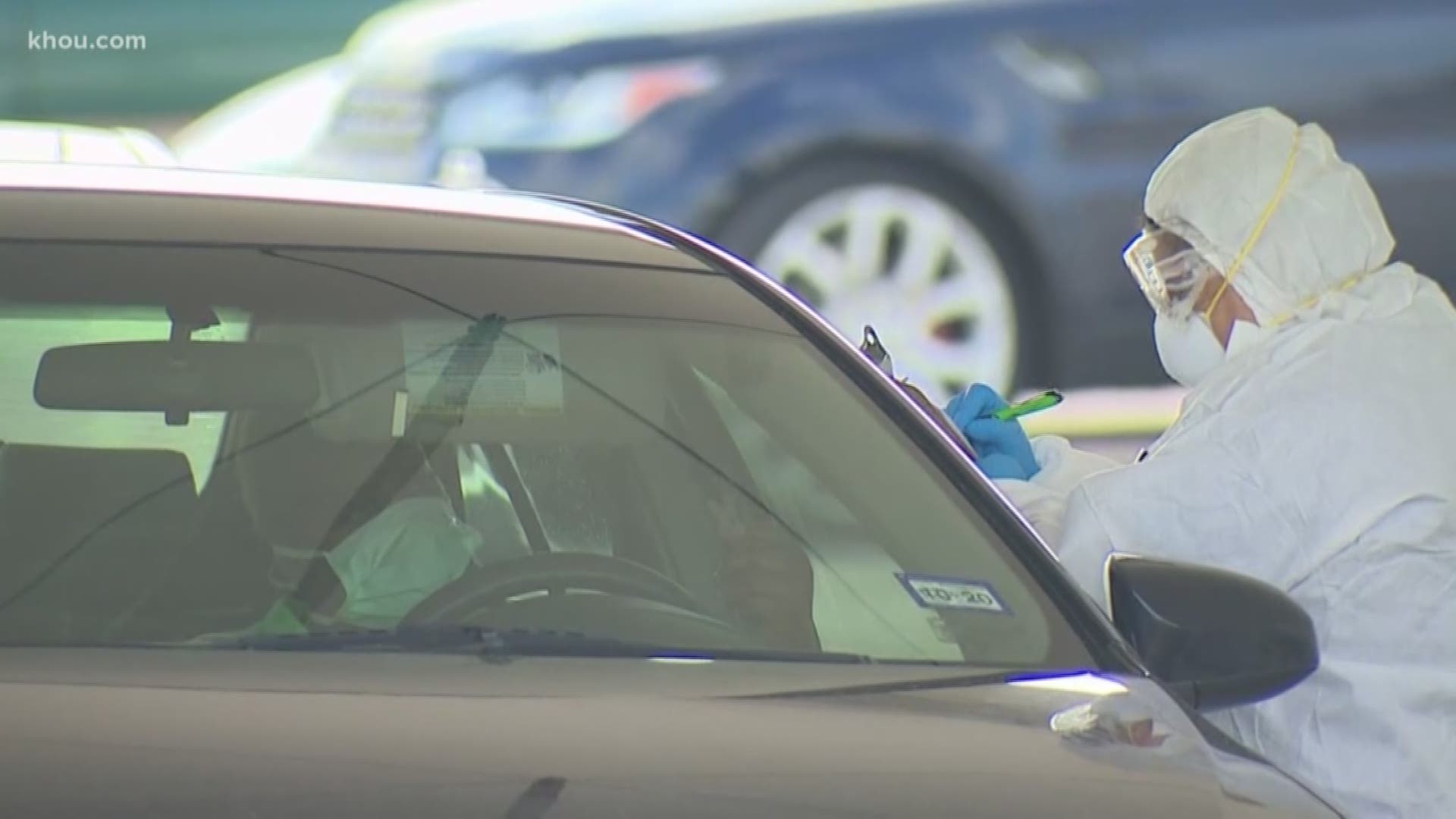MONTGOMERY COUNTY, Texas — *Editor's Note: The above video was originally published April 6, 2020*
UPDATE: Montgomery County Judge Mark J. Keough on Friday ended the “Stay Home, Stop the Spread” order originally issued March 27.
This new order will end the curfew and substitutes the county order for Texas Gov. Greg Abbott's Executive Order GA-14, which will expire April 30.
This new order further calls on all residents and businesses to follow new guidance issued by the White House and the orders issued by the Gov. Abbott, which are expected on April 27.
“After reaching our peak of COVID-19 cases earlier this week and in consultation with local health authorities and hospital executives, Montgomery County is continuing to see a slower rise in active cases than originally projected," Keough said. “With the slower progression of the virus among our population than originally projected, and with hospital utilization continuing to remain low we can begin to open up sectors of our economy as early as the Governor allows.”
The order adds additional local guidance for businesses and individuals so they can safely return to work across Montgomery County and are in step with federal and state guidelines recently issued.
Additionally, the order continues restrictions on nursing homes and senior care facilities to ensure our vulnerable populations are protected moving forward.
PREVIOUSLY: Montgomery County has issued a 'stay home, stop the spread' order Friday that asks all residents to follow a nightly curfew and to stay at the homes unless performing an essential task or working at an essential business.
The order, which was established to help stop the spread of the coronavirus, will be in effect from 11:59 p.m. Friday to April 12. Under the order, all residents must also follow a daily curfew from 11:59 p.m. to 6 a.m.
The order does include has an exception for those seeking urgent medical attention and essential federal employees.
Montgomery County is the ninth Houston-area to enact such an order.
When outside their homes, residents are being encouraged to practice social distancing, which is the act keeping 6 feet of space between yourself and other individuals at all times.
The public and private gatherings outside a home of any number are prohibited. Nothing in the order stops household members from gathering or affects court orders or agreements regarding child-related visitation or custody arrangements.
Most of the guidelines specified in the order are in conjunction with orders issued the over the past few weeks by Texas Gov. Greg Abbott.
Residents are allowed to go to parks or other outdoor recreation areas, but public programs must close.
Bars, restaurants, and any establishment serving food or beverages are no longer allowed to offer inside dining. They can only do delivery, takeout or drive-thru service.
Gyms, fitness centers, and all fitness or sports training facilities must close. The order also impacts beauty salons, licensed message businesses, tattoo parlors, movie theaters, game rooms, indoor and outdoor flea markets and malls most also close.
Churches, synagogues, mosques or other places of worship can only conduct service over video, audio, teleconference and drive-in. Faith and religious leaders can do one-on-one counseling or ministering for end of life situations at hospitals or at the request of a peace officer or government official. Religious institutions must limit their staff to only those needed to maintain the facility and social distancing must be practiced at all times.
Read the full order here for a complete lists of essential tasks, essential business and other details.
Coronavirus symptoms
The symptoms of coronavirus can be similar to the flu or a bad cold. Symptoms include a fever, cough and shortness of breath, according to the Centers for Disease Control. Some patients also have nausea, body aches, headaches and stomach issues. Losing your sense of taste and/or smell can also be an early warning sign.
Most healthy people will have mild symptoms. A study of more than 72,000 patients by the Centers for Disease Control in China showed 80 percent of the cases there were mild.
But infections can cause pneumonia, severe acute respiratory syndrome, kidney failure and even death, according to the World Health Organization. Older people with underlying health conditions are most at risk for becoming seriously ill. However, U.S. experts are seeing a significant number of younger people being hospitalized, including some in ICU.
The CDC believes symptoms may appear anywhere from two to 14 days after being exposed.
Human coronaviruses are usually spread through...
- The air by coughing or sneezing
- Close personal contact, such as touching or shaking hands
- Touching an object or surface with the virus on it, then touching your mouth, nose or eyes before washing your hands.
Help stop the spread of coronavirus
- Stay home when you are sick.
- Eat and sleep separately from your family members
- Use different utensils and dishes
- Cover your cough or sneeze with your arm, not your hand.
- If you use a tissue, throw it in the trash.
- Follow social distancing
Lower your risk
- Wash your hands often with soap and water for at least 20 seconds. If soap and water are not available, use an alcohol-based hand sanitizer.
- Avoid touching your eyes, nose, and mouth with unwashed hands.
- Avoid close contact with people who are sick.
- Clean and disinfect frequently touched objects and surfaces.
- If you are 60 or over and have an underlying health condition such as cardiovascular disease, diabetes or respiratory illnesses like asthma or COPD, the World Health Organization advises you to try to avoid crowds or places where you might interact with people who are sick.
Get complete coverage of the coronavirus by texting 'FACTS' to 713-526-1111.
MORE COVID-19 UPDATES ON KHOU.COM

